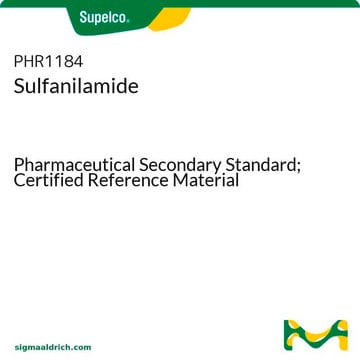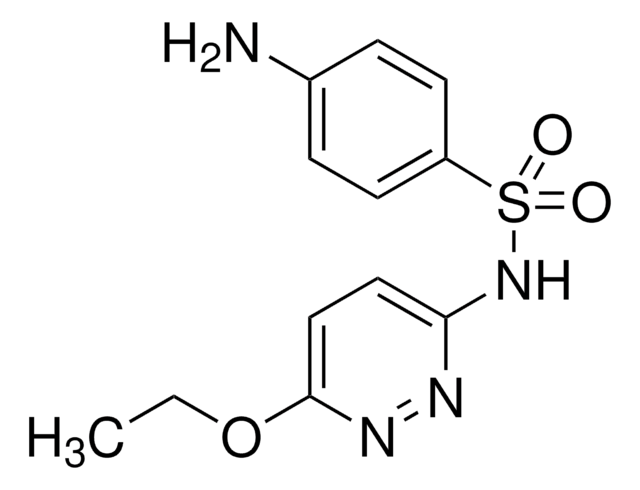46874
Sulfanilamide
VETRANAL®, analytical standard
Synonym(s):
p-Aminobenzenesulfonamide
About This Item
Recommended Products
grade
analytical standard
Quality Level
Agency
EPA 1694
product line
VETRANAL®
shelf life
limited shelf life, expiry date on the label
technique(s)
HPLC: suitable
gas chromatography (GC): suitable
mp
164-166 °C (lit.)
antibiotic activity spectrum
Gram-negative bacteria
Gram-positive bacteria
application(s)
clinical testing
format
neat
Mode of action
DNA synthesis | interferes
enzyme | inhibits
SMILES string
Nc1ccc(cc1)S(N)(=O)=O
InChI
1S/C6H8N2O2S/c7-5-1-3-6(4-2-5)11(8,9)10/h1-4H,7H2,(H2,8,9,10)
InChI key
FDDDEECHVMSUSB-UHFFFAOYSA-N
Looking for similar products? Visit Product Comparison Guide
Related Categories
General description
Application
Legal Information
Storage Class Code
11 - Combustible Solids
WGK
WGK 1
Flash Point(F)
Not applicable
Flash Point(C)
Not applicable
Personal Protective Equipment
Choose from one of the most recent versions:
Already Own This Product?
Find documentation for the products that you have recently purchased in the Document Library.
Customers Also Viewed
Our team of scientists has experience in all areas of research including Life Science, Material Science, Chemical Synthesis, Chromatography, Analytical and many others.
Contact Technical Service




